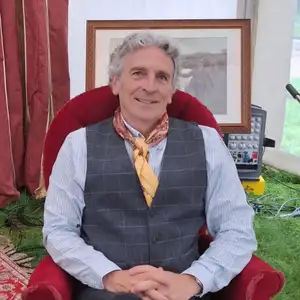It is no secret that we are living in unprecedented times. What should we believe? Can we trust the information we read online, or see on television? How can we make the best decisions for ourselves, our families, and our people?
To many, it may seem like there are no answers, and that amidst managing new households, earning lower income, and trying not to get sick, we really cannot believe or trust anything we hear or see.
The research community is critical in helping to calm these concerns. And yet the researchers are living through the pandemic as well, facing their own challenges, and may be reasonably hesitant to engage.
Here are three ideas that may help make engagement easier.
1. Keep your own door open
Sometimes scholars do not engage with the broader community because they do not know what they could add to situations that are already fraught. When we think, “They do not need to hear from me”, we tend to stay quiet, so as not to draw attention to us that could be directed elsewhere.
In effect, we are shutting the door on the opportunity to engage with the broader community. And no one will come through a door that is shut.
Instead, think about keeping that door to engagement open. One way to do this is to submit evidence to Government or Parliament. A quick glance at Parliament’s Inquiries shows requests to hear about COVID-19 with respect to areas as diverse as constitutional law, homelessness, the Welsh economy, international trade, the charity sector, and the judicial system, to name only a few.
Lists like these spell out what policy makers are actively trying to learn. They offer us time to think about, prepare, and submit evidence on our own timelines and terms.
They represent Parliament keeping the door to engagement open. And when we submit evidence, it is like walking through the door to what could be a long and productive collaboration.
2. Information, not answers
Another reason scholars may be hesitant to engage with policy makers is because of a concern that our participation could be misinterpreted, misrepresented, or cited as grounds for poor decision making. We do not want to contribute to a bad policy outcome.
In this respect, it is key to remember that we are supplying information, rather than answers. Part of keeping your door open is giving people information and helping them interpret it; what they do with that information is their responsibility.
In other words, policy makers are not asking us to make their decisions for them – they are asking for information so they can make their decisions better. And information is our stock-in-trade, so we are well-qualified to provide it.
3. Reach out to others
It is easy to convince ourselves that our own expertise would not be useful, that we do not have anything to offer, especially in the midst of navigating our own challenges. And sometimes that may be true – an expert in 18th-Century Eastern European religion may not have insights to offer about viral loads.
But even if a request does not fall within our expertise, we do have something to offer – we have years of training, experience, and connections to other experts.
For example, the Disaster and Emergency Research Network is full of scholars from around the world who study disasters within disciplines ranging from virology, transportation engineering, and political science to psychology, art history, and film studies. If you do not have information to answer an inquiry, alert your network to the need, because someone there may be able to help.
There may have never been a time more critical for engagement between researchers, policy makers, and everyday citizens. Public officials are overwhelmed with managing and planning for a new economic and social order, and have very little time to spend researching what actions might be best. It is up to the research community to supply high-quality information and guidance that will help them make evidence-based decisions for the good of the people they represent.


